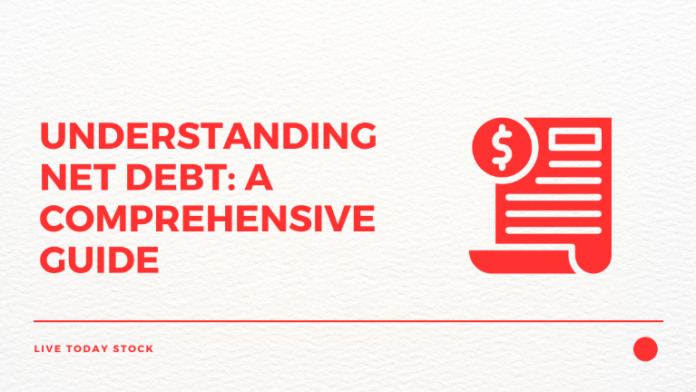Net Debt is a financial metric that provides insights into a company’s overall debt position by taking into account both its debt and cash holdings. In this comprehensive guide, we’ll explore what Net Debt is, why it’s important, how to calculate it, and its significance for investors.
What is Net Debt?
Net Debt represents the difference between a company’s total debt and its cash and cash equivalents. It provides a clearer picture of a company’s debt obligations after considering its available cash resources. Net Debt is an essential metric for assessing a company’s financial health and liquidity position.
Why is Net Debt Important?
Net Debt is a critical measure for investors as it helps gauge a company’s ability to meet its debt obligations and manage its liquidity effectively. A high Net Debt level relative to the company’s earnings or cash flow may indicate financial risk and could impact its creditworthiness and investment attractiveness.
How to Calculate Net Debt
The formula for calculating Net Debt is straightforward:
Net Debt=Total Debt−Cash and Cash Equivalents
Where:
- Total Debt represents all outstanding debt obligations of the company, including short-term and long-term debt, loans, and borrowings.
- Cash and Cash Equivalents include cash on hand and highly liquid assets that can be readily converted into cash within a short period.
Significance for Investors
- Investors use Net Debt as a key indicator of a company’s financial strength and solvency. A low or negative Net Debt indicates that the company has more cash than debt, which may signal financial stability and flexibility.
- Net Debt-to-EBITDA ratio, calculated by dividing Net Debt by Earnings Before Interest, Taxes, Depreciation, and Amortization (EBITDA), is commonly used to assess a company’s debt leverage and repayment capacity.
Conclusion
Net Debt is a crucial metric that provides valuable insights into a company’s debt position and financial health. By understanding what Net Debt is, how it’s calculated, and its significance for investors, you can make informed investment decisions and assess the financial risk associated with potential investments more effectively.

